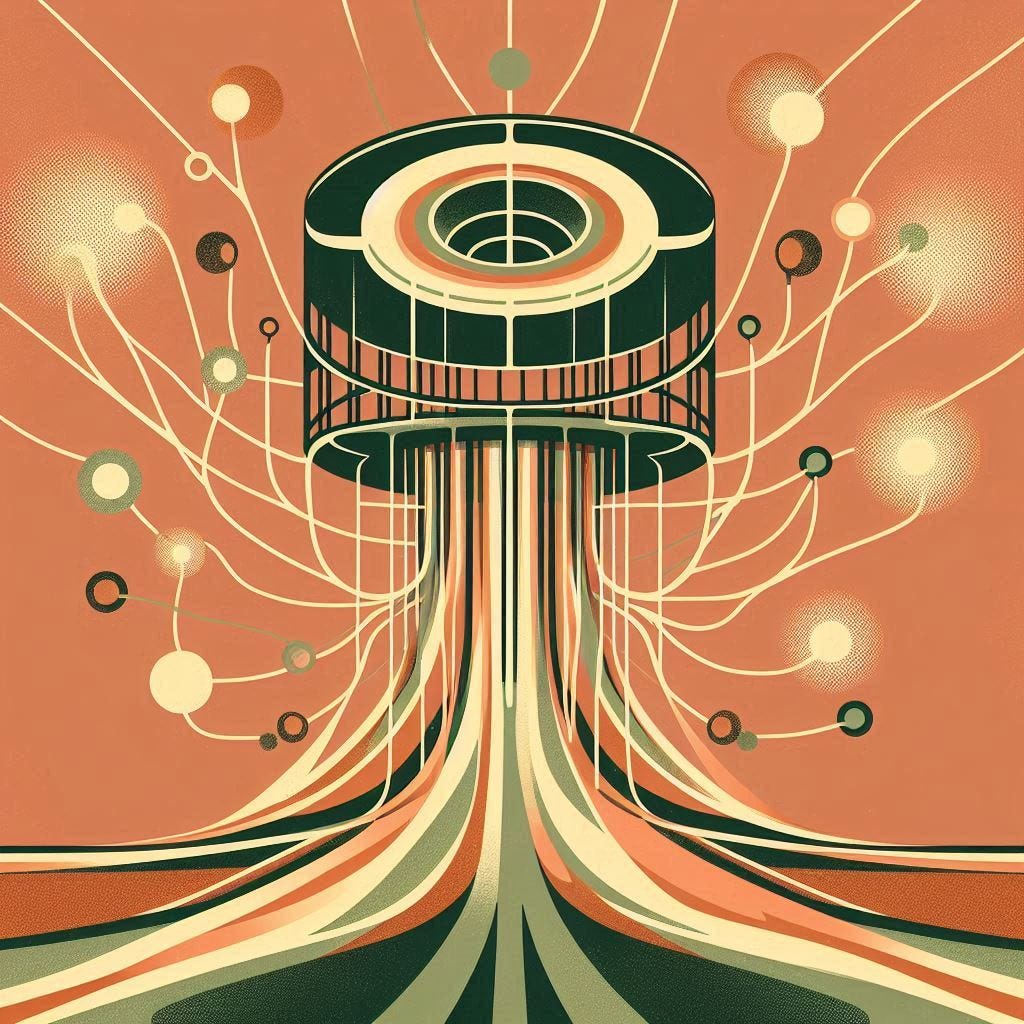The Decentralization Paradox
Why More Freedom Leads to More Control
Imagine installing solar panels on your roof. Finally independent from the energy provider, you think. But then you realize: The smart grid dictates when you can feed power back in. The inverter’s app runs on servers in China. And the feed-in tariff? Still set by someone else. Welcome to the paradox of technological decentralization.
We’re witnessing a fascinating contradiction: The more distributed our technology becomes, the more centralized its control grows. It’s like building better and better roads, only to see the toll booths become ever more powerful. Blockchain promises freedom from banks, but who controls the major exchanges? The internet was supposed to democratize information, yet Google decides what we find.
Michel Foucault would have recognized his panopticon in this phenomenon—just digitized. The French philosopher described how modern power operates not through direct force but through surveillance and normalization. Today, we don’t need a central watchtower anymore. Every decentralized device becomes an observation post, sending data to invisible centers. Power is everywhere and nowhere at once.
Marshall McLuhan, the prophet of the "Global Village," saw it differently. For him, technology was an extension of humanity. But his vision of a worldwide village overlooked something crucial: In a village, everyone knows everyone, but in the digital village, only a few platforms know everyone. McLuhan dreamed of connection but got networked supervision instead.
Benjamin Bratton talks about the "Stack"—a planetary computing infrastructure organized in layers. Like an orchestra without a conductor, where every musician plays virtuosically, but the score comes from a single composer. Execution is distributed; composition is centralized. Edge computing brings processing power to the network’s edge, but the algorithms running there? They come from headquarters.
The truly crazy part? This centralization isn’t a conspiracy but a logical necessity. As complexity grows, the need for coordination increases exponentially. It’s like cooking for a big family—the more chefs in the kitchen, the more important the recipe becomes. And someone still has to decide what’s being cooked in the first place.
The EU tries to counter this with the Digital Services Act, China builds its Great Firewall, and somewhere in between, Estonia experiments with e-Residency while startups tinker with blockchain currencies. Yet all these approaches only confirm the paradox: Even the attempt to decentralize power creates new centers of control.
Maybe it’s time to shift our thinking. Instead of seeing decentralization as the opposite of centralized power, we should understand them as two sides of the same coin. Like a spiderweb—decentralized in structure, but the spider feels every vibration in every thread.
The question isn’t whether we can resolve this paradox. The question is how we learn to live with it. Because while we’re still debating, the next layer of the Stack is already being built. And it’s not asking for our permission.


